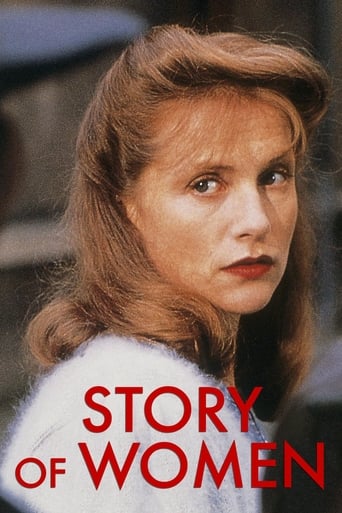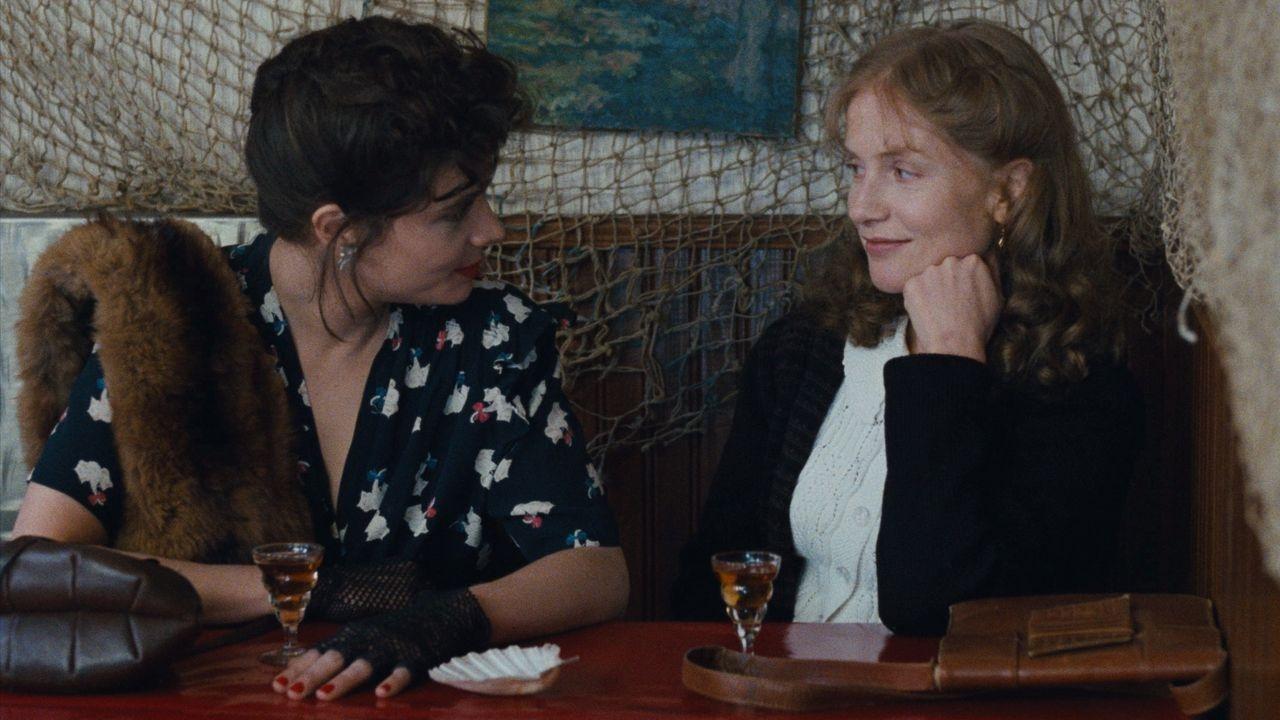Jackson Booth-Millard
From director Claude Chabrol (Le Boucher), from the title it was no obvious what the story or plot of this French film would involve, but I was introduced to it because of the book 1001 Movies You Must See Before You Die, and if it featured in it that was good enough reason for me it a chance. Basically set in World War II, France is occupied by the Nazis, Marie Latour (Isabelle Huppert) is a mother with two children she raises in a decayed flat, she has limited education from her schooling, and her husband Paul (François Cluzet) who was on the front has returned home. Paul's weakness is causing him problems holding a job, so it is up to Marie to make money somehow to support the family, and she discovers a way to use soapy water douche as a way to abort unwanted babies of women, and she charges them for this service. Many of the women she performs abortions for have been impregnated by Germans occupying the country, and with the money she makes she can afford a new flat with more bedrooms, she also rents the bedrooms to prostitutes to take their clients during the day, and she can buy better food and new clothes. Eventually this good fortune turns sour when Paul becomes dismissive towards Marie because he knows what she has been doing for prostitutes and pregnant women, but she is keen to find another career in singing, but of course the authorities catch onto what she is up to, so she is arrested, and becomes one of the last women in France to be guillotined. Also starring Marie Trintignant as Lulu / Lucie and Nils Tavernier as Lucien. I did not realise it was based on a true story, but it makes sense when I think about it, because the harshness of the plot is realistic, and the way that it is played out is well done, the performance of Huppert is suitable for the character as well, it can be uncomfortable in moments, but it is an intriguing Second World War drama. It was nominated the Golden Globe for Best Foreign Language Film. Worth watching!
writers_reign
This is the movie that Mike Leigh ripped off in Vera Drake and it's on view again as part of the Isabelle Huppert season at London's National Film Theatre. The overriding impression is the magnificent central performance from Huppert, definitely one of her best and that's saying a lot; one wonders at the folly of asking Imelda Staunton to go up against Huppert; this is something you just don't do unless you happen to be Nathalie Baye, Catherine Frot or Carole Bouquet and even then you make sure your affairs are in order. Chabrol hits almost every target at which he aims and he aims at a lot, the fact that the film is more or less true - based on the story of the last women to face the guillotine in France - is largely academic. In a nice touch for a tale of a woman who treated abortion casually Huppert's own five year old daughter appears as her fictional offspring. The towering central performance is only one strength of a film that is greater than its parts.
pegd-1
With cool detachment and a subtle touch of horror, Claude Chabrol dissects the story of a woman who was guillotined during the Nazi occupation of France. One of his strengths as a director is that he allows the movie goer to form his/her own thoughts and opinions about the issues at hand. He is not a proselytizer. The film covers a lot of ground: illegal abortion, collaborating with the enemy, parenting, marital communication, greed and a slew of other human weaknesses. All of this against the backdrop of an occupied France, a country who witnessed the horrors of WWI and never fully recovered, and whose WWII soul (what is left of it) has been torn apart.Isabelle Huppert does a fine job interpreting Marie LaTour, the woman in question. Marie is not the most sympathetic of characters. In fact, most of the major characters are not "sympathique".(My favorite character is the prostitute Lulu, acted by Marie Trintignant.)All in all a well directed, well structured film about a tragic period in the lives of the French people. But you be the judge.Trivia: "Vera Drake" and "L'Affaire de Femmes" both begin in apartments which have the the same god awful green walls.
kthnly
I'd like to focus on this film as a French film, not of the United States. If one has seen "La Chagrin et la Pitie," then one knows the legacy of this film. France was not perfect during WWII. Not everyone in France was part of the resistance, mainly, they were trying to survive. I think its an amazing film that sheds light on a crucial point in French history. Yes, it's about abortion and Chabrol does a great job ensuring his abortionist is less than perfect. That's a wonderful point he makes, that no one is perfect, not even the moral majority of the government. But, I come away from this film with the same questions that I get from "Lacombe, Lucien," which are: 'what would I have done?' And, please, don't Monday morning quarterback World War II.


 AD
AD



